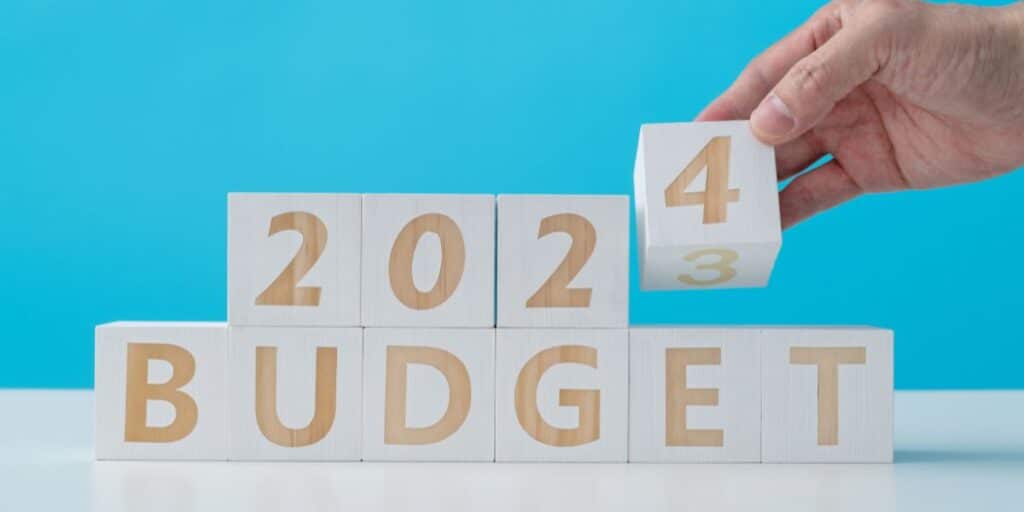With the ever-changing world we live in, it’s essential to adapt our financial habits to ensure long-term stability. This comprehensive guide will walk you through how to budget effectively in 2024 and provide key strategies and tips to help you establish and maintain a sustainable budget.
Introduction to Budgeting in 2024
As we step into the year 2024, the importance of budgeting cannot be emphasized enough. With the global economy still recovering from the effects of the pandemic, alongside the constant rise of inflation and the increasing cost of living, it’s paramount that we take control of our finances. Learning how to budget is not only a valuable skill to acquire, but it is also a cornerstone to achieving financial freedom and security.
In this guide, we will explore why budgeting is important, how to create a budget, and various tips and strategies to help you maintain a sustainable budgeting lifestyle. We will also discuss the utilization of budgeting tools and apps to streamline your budgeting process.
Why is Budgeting Important?
Budgeting is a crucial aspect of personal finance management, enabling you to track and control your income and expenses. It helps you make informed decisions about where your money is going and how to allocate it effectively. A well-planned budget allows you to:
- Achieve financial goals: Setting realistic financial goals and working towards them becomes possible when you have a clear understanding of your income and expenses.
- Eliminate debt: By planning your budget and cutting down on unnecessary expenses, you can allocate more funds towards paying off your debts, leading to a debt-free life.
- Save for emergencies: Having an emergency fund provides a safety net during unforeseen circumstances or financial crises. Budgeting can help you build and maintain an emergency fund.
- Plan for future expenses: Budgeting helps you prepare for significant future expenses, such as buying a new car, purchasing a house, or funding your children’s education.
- Reduce financial stress: A well-structured budget gives you a sense of control over your finances, reducing financial stress and anxiety.
How to Create a Budget: Essential Steps
Creating a budget can seem like a daunting task, but breaking it down into smaller steps can make the process more manageable. Here are the essential steps to create a sustainable budget:
Setting Realistic Financial Goals
Before diving into the nitty-gritty of budgeting, it’s essential to set clear, realistic financial goals. These goals should be specific, measurable, attainable, relevant, and time-bound (SMART). Examples of financial goals include saving for a down payment on a house, building an emergency fund, or paying off student loans.
Take the time to list your short-term, medium-term, and long-term financial goals. Prioritize these goals and create a timeline for achieving them. Establishing your financial goals will give you a clear direction and motivation to stick to your budget.
Assessing and Tracking Your Income and Expenses
The next step in creating a budget is to determine your total monthly income, including your salary, freelance work, rental income, and any other sources of revenue. Be sure to use your net income, which is the amount you receive after taxes and deductions.
Once you have a clear understanding of your income, it’s time to track your expenses. Categorize your expenses into fixed, variable, and discretionary. Fixed expenses are those that remain constant each month, such as rent or mortgage payments, car payments, and insurance premiums. Variable expenses fluctuate monthly, including utilities, groceries, and transportation costs. Discretionary expenses are non-essential spending, such as dining out, entertainment, and vacations.
Track your expenses for at least a month to get an accurate picture of your spending habits. This information will be invaluable in creating your budget.
Allocating Funds to Different Budget Categories
Now that you have a clear understanding of your income and expenses, it’s time to allocate funds to different categories in your budget. A popular method is the 50/30/20 rule, which suggests allocating 50% of your income to essentials (housing, food, utilities), 30% to discretionary spending, and 20% to savings and debt repayment.
However, it’s essential to tailor your budget categories to your unique financial situation and goals. For instance, if you have high-interest debt, you may want to allocate more than 20% of your income towards debt repayment. Similarly, if you’re saving for a significant expense, you may need to adjust your discretionary spending.
Tips for Better Money Habits
Adopting better money habits can make a significant impact on your financial well-being. Here are some helpful tips to improve your financial habits:
- Pay yourself first: Prioritize saving money by setting aside a portion of your income as soon as you receive it. This ensures that you’re consistently working towards your financial goals.
- Avoid impulse purchases: Impulsive spending can derail your budget. Before making a purchase, take a step back, and evaluate if it’s necessary and if it aligns with your financial goals.
- Use cash or debit cards: Using cash or debit cards instead of credit cards can help you avoid overspending and accumulating high-interest debt.
- Review your budget regularly: Regularly reviewing and adjusting your budget ensures that it remains relevant to your financial situation and goals.
Strategies for Reducing Expenses and Saving Money
Reducing expenses and saving money are essential components of a sustainable budget. Here are some strategies to help you cut costs and save more:
- Eliminate or reduce discretionary spending: Discretionary expenses, such as dining out and entertainment, can add up quickly. Cut back on these expenses to free up more funds for your financial goals.
- Shop smarter: Look for sales, use coupons, and compare prices before making a purchase. Additionally, consider buying used or refurbished items when possible.
- Reduce utility costs: Adopt energy-saving habits, such as turning off lights when not in use, using energy-efficient appliances, and sealing drafts in your home.
- Opt for cheaper alternatives: Instead of expensive gym memberships, opt for free workout videos online or outdoor activities. Consider canceling cable and using streaming services instead.
How to Maintain and Adjust Your Budget Over Time
A budget is not a static document but rather a flexible tool that should be adjusted as your financial situation and goals change. Regularly reviewing your budget will help you identify areas where you can cut back on spending, as well as areas where you may need to allocate more funds.
It’s essential to track your progress towards your financial goals and celebrate your achievements. Rewarding yourself for reaching milestones can help you stay motivated and committed to your budget.
Utilizing Budgeting Tools and Apps
Budgeting tools and apps can help streamline the budgeting process and make it easier to track your income and expenses. Some popular budgeting tools include:
- Mint: A comprehensive budgeting app that allows you to link your bank accounts, credit cards, and investment accounts. Mint provides a complete overview of your finances and offers personalized budgeting tips.
- You Need a Budget (YNAB): A user-friendly app that helps you create a customized budget and track your spending. YNAB focuses on the zero-based budgeting method, which allocates every dollar of your income to a specific category.
- PocketGuard: An app that focuses on helping you save money by identifying areas where you can cut back on spending. PocketGuard also offers bill negotiation services to help lower your monthly expenses.
Conclusion: Embracing a Sustainable Budgeting Lifestyle
Learning how to budget effectively is crucial for achieving financial stability and freedom. By following the steps outlined in this guide, setting realistic financial goals, and adopting better money habits, you can create and maintain a sustainable budgeting lifestyle.
Remember, the key to successful budgeting is consistency and flexibility. Regularly review and adjust your budget to ensure it remains relevant to your financial situation and goals. Embrace the journey towards financial security and freedom by making budgeting a permanent part of your life.
Related Links:




